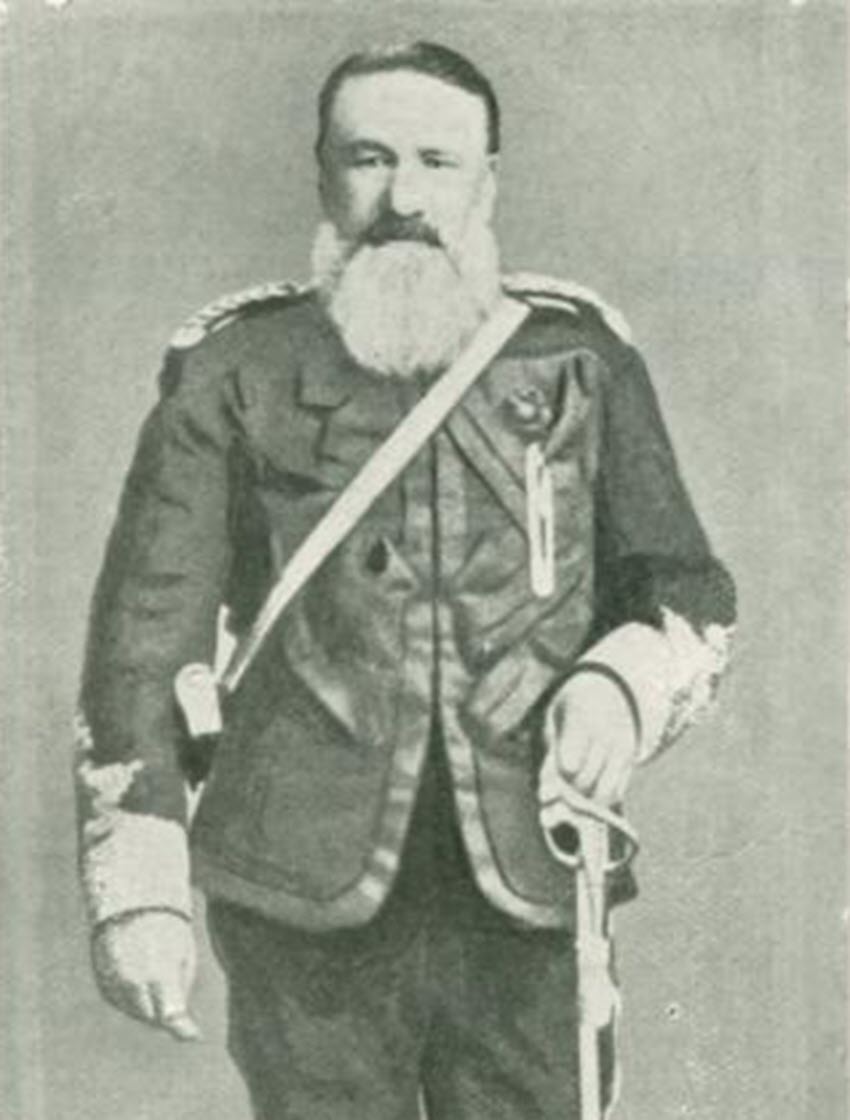
Petrus Jacobus Joubert (more commonly known as Piet Joubert (born on 20 January 1834 in Oudtshoorn in the Cape Colony - died on 28 March 1900 in Pretoria in the Transvaal) was a Boer military leader, and Commander-General of the South African Transvaal Republic of 1880 to 1900. His life and career exemplify many of the traits typical of the Boers: stubbornness, self-reliance, hard work, perseverance and commitment to the cause.
Joubert was born in British territory, the son of Huguenot (French Protestants) who had fled religious persecution in their homeland and settled in Southern Africa around 1668. At the time, the country was a possession of the Dutch Republic, a protestant state - but the territory was later annexed by the British, leading to discontent and several insurrections against the British by the local white settlers, known as Boers.
Joubert's father died at an early age and he and his mother moved to the Boer territory of Transvaal where he took up farming and built a commercial enterprise. Most Boers of the time were illiterate, of if they could read at all had only read the Bible and some hymn books. But Joubert had a thirst for knowledge and an interest in the law. He began reading the few law books available to him and eventually set up a law practice. Despite being a self-taught lawyer, Joubert gained a reputation as an excellent attorney.
His reputation as a business man and legal scholar opened up doors for him and he was appointed Attorney General in the Boer administration. However the Transvaal was annexed by Great Britain to its Cape Colony, putting in motion the events that led to the First Boer War. Joubert distinguished himself by refusing to collaborate with the British and refused to serve in any administration of the territory, and he actively stirred up trouble against the British occupiers.
When the First Boer War broke out, he was - despite any lack of military training - put in charge of the Boer forces and achieved several notable victories over the British, leading to the expulsion of the British from the Transvaal. In the years between the first and second Boer War, Joubert was a perpetually unsuccessful candidate for President of the Boer Republic.
When the Second Boer War broke out, Joubert was again in overall command of the Boer armies, but he lacked the same offensive spirit and boldness that he had displayed during the first war. A very cautious man, Joubert stayed on the defensive and had difficulty in imposing his will on his military subordinates. While he remained nominally the commander in chief of the Boer forces, Joubert took little part in active operations, and all of the Boer offensives were planned and executed by other commanders with little or no input from him.
In October 1899, Joubert was commanding a raid near the Tugela River when he was thrown from his horse and injured. As a result of his injuries, Joubert resigned his command. Louis Botha resumed command of the Transvaal army until the end of the war.
Joubert's injuries led to an infection and he died of peritonitis in Pretoria on March 28, 1900.
He was considered an honourable enemy by the British who offered him rare praise. Sir George White, the defender of Ladysmith, called Joubert "a soldier and a gentleman, and a brave and honourable opponent". Britain's poet laureate, Alfred Lord Tennyson, wrote a poem entitled Piet Joubert in which he absolved him of any blame for the start of the war.